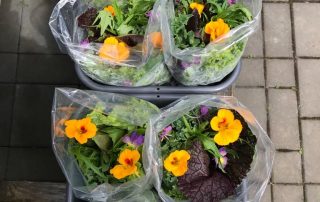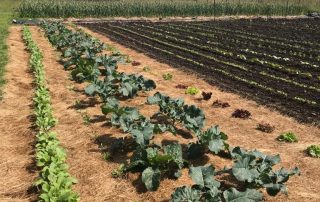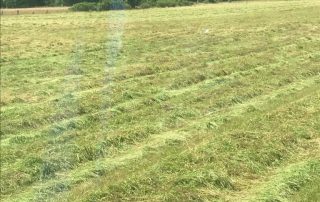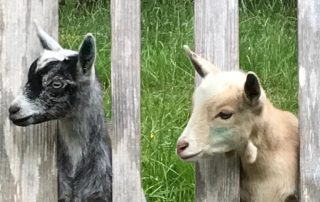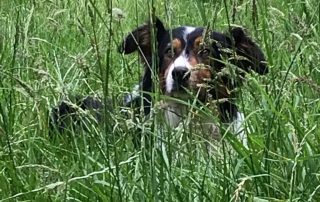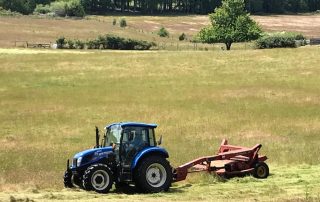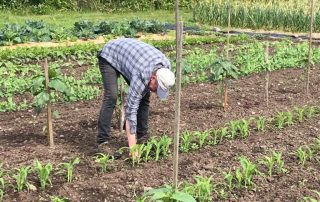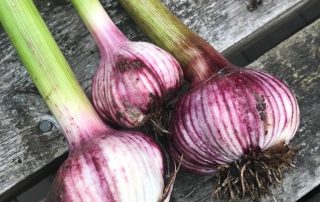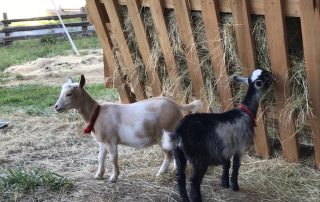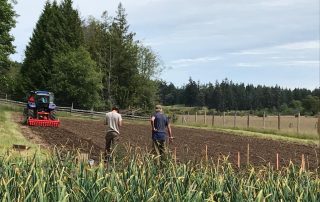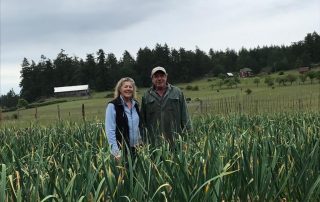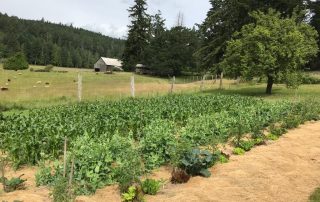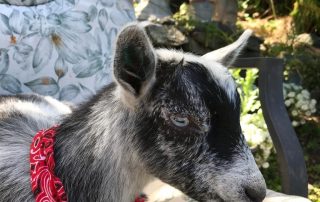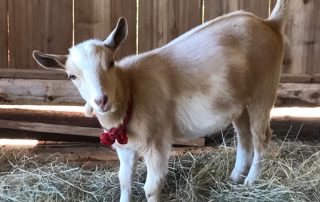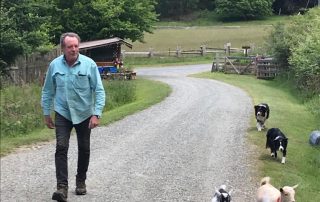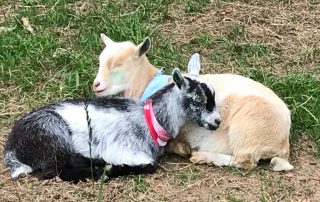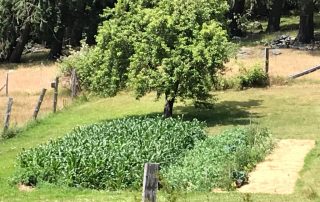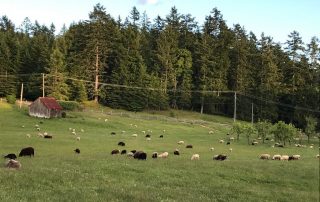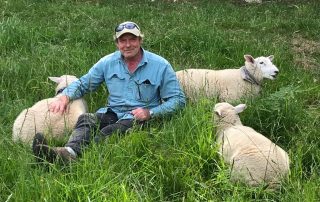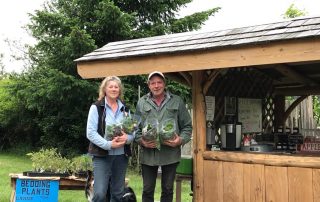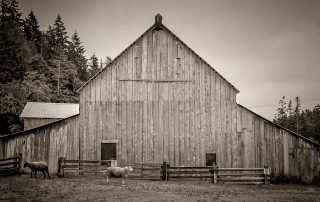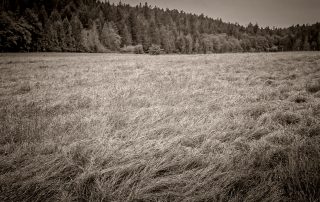A Day on a Salt Spring Farm
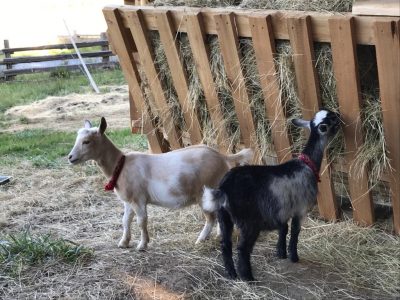
A day at Ruckle Heritage Farm begins with feeding the farm animals, with the Border Collies often in tow. The farm is home to roughly 80 ewes (plus approximately 120 lambs born in January and February), nine adorable miniature Nigerian Dwarf goats, numerous Highland cattle and Alison the Jersey cow, about two dozen chickens, several roosters and a breeding turkey flock. Contact us to book a farm tour and see these wonderful animals up close.
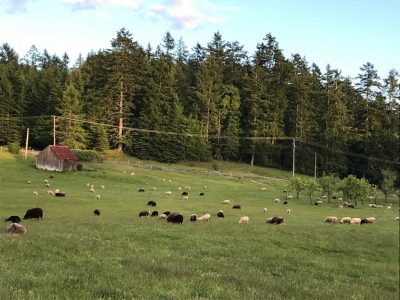
During the summer, the sheep and cows feed themselves out to pasture but in the winter months they are fed hay and the nursing ewes are given alfalfa and grain with their hay. Any bottle fed lambs are fed each morning and evening. Sadly, mother sheep sometimes reject their young or die during the birthing process. These lambs are therefore bottle fed. To learn more about the emotional complexity of raising animals for food, please read our post about our dear bottle-fed lamb named Brian

Chickens and turkeys are fed each morning and any bedding that needs changed is tended to and their water filled as needed. Eggs are collected each morning and evening and sold at the farm stand and to local residents. Contact to purchase these truly pasture raised eggs with brilliant orange yolks. The turkeys are completely pasture raised and even roost in the trees. Such is the life of a happy turkey, but unfortunately because they are not locked in for the night, they do sometimes fall prey to nighttime predators. Turkeys can be purchased in November and December and sell out every year. Contact to reserve your holiday turkey.
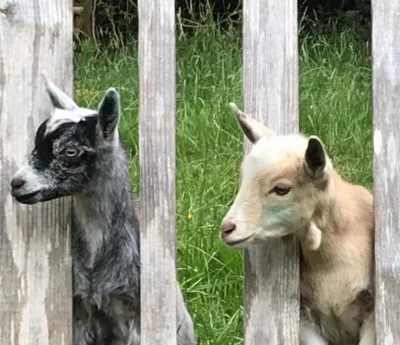
The day’s farm chores are varied. The chicken coop is mucked out a couple times a year and repairing fencing is an ongoing project. The goats are particularly mischievous and are always looking for escape routes so they can go exploring. The chickens are free to roam outside all day but at night, the chicken coop is secured to keep out predators. Mike Lane once walked into the chicken coop to find a bald eagle! Unfortunately there was nothing he could do but walk away. When asked how many chickens the farm has he laments, “Less than yesterday”. Such is the cycle of life on the farm.
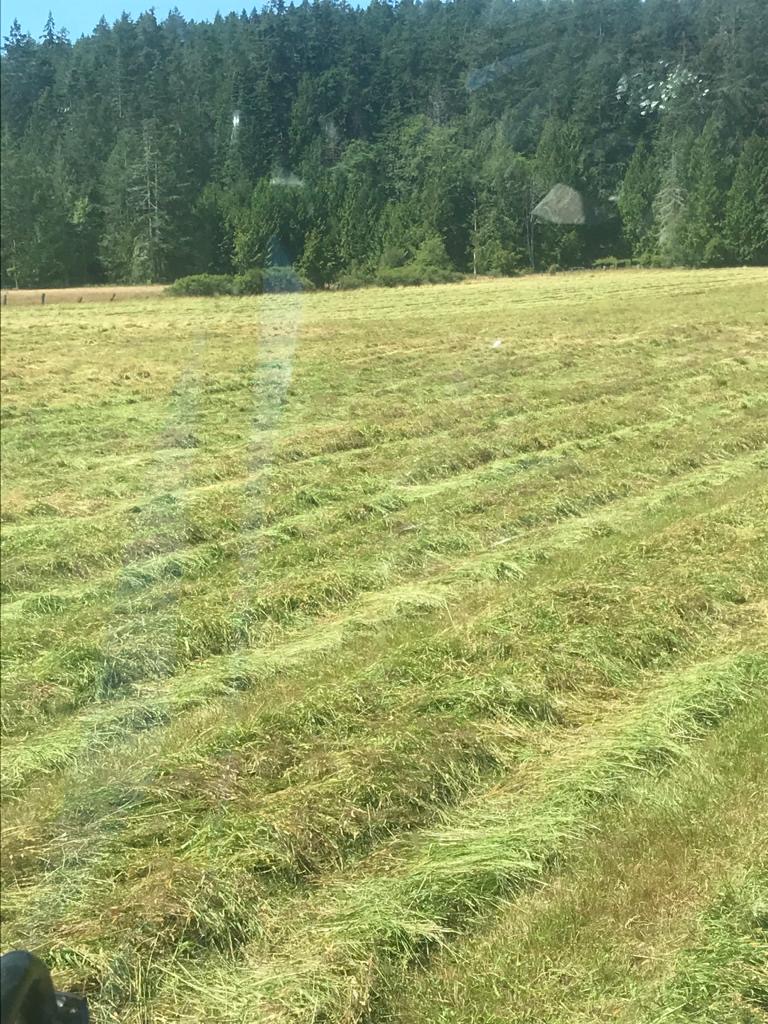
In the winter, the farm becomes home to 120 lambs. This is a busy time of year with the pregnant sheep needing checked regularly when they are near lambing . Thankfully, birth on the farm is usually a smooth process that doesn’t need much support but at other times intervention is necessary and therefore close monitoring is required to ensure as many successful births as possible. Special feeding is required for the nursing ewes, so there is a constant shuffle of pregnant or nursing ewes being separated so they can be fed or checked on. When lambs are first born, they are kept in a small pen with the ewe to assist with their bonding and to monitor the lamb and make sure it is feeding well with no problems. Depending on space, in a couple days they join the flock. During the winter, trees are cut for firewood and seasoned for the following year. Building and repairing fencing is an unending winter job.
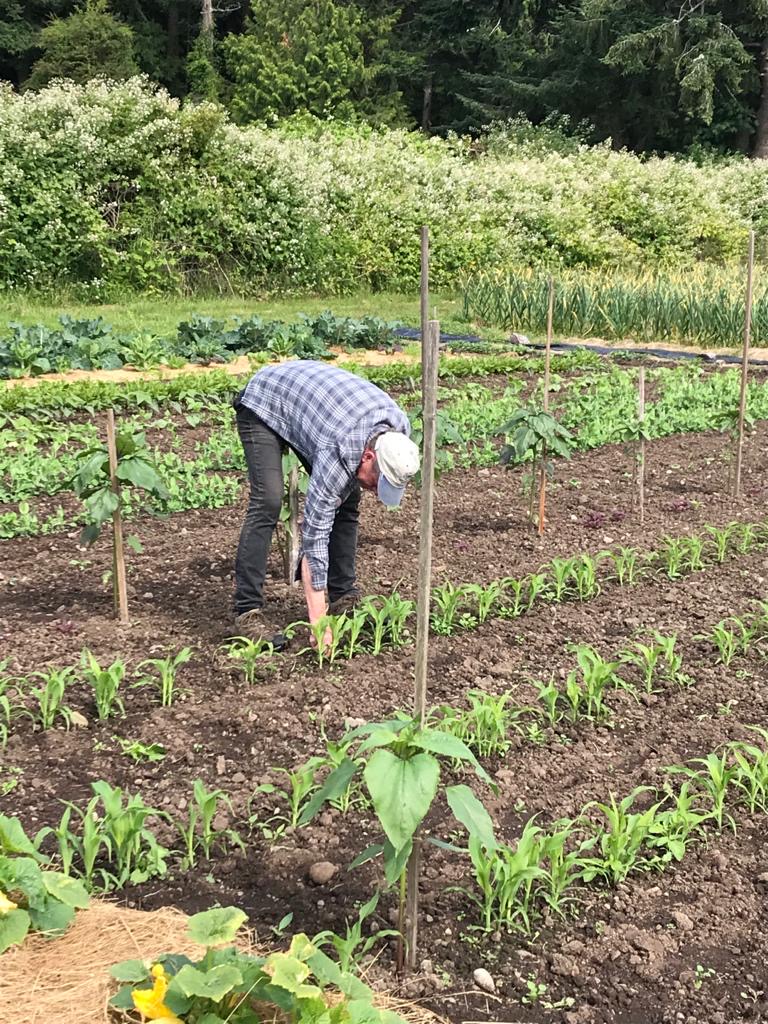
In the spring, lambs begin to be sent to market.. Contact the farm to order a whole lamb or a variety of cuts. The garden is planted in late spring, with many plants starting off in the greenhouse in early spring. The farm has two large gardens which produce a bounty of vegetables that are sold at the farmstand (at the end of the Norman house driveway) and at Natureworks health food store in Ganges. While the farm is not certified organic, no chemical fertilizers or pesticides are ever used. The garden vegetables and flowers are award winning with the farm winning the aggregate trophy for the most overall wins in a category at the annual Salt Spring Island Fall Fair. Weeding is an ongoing job spring through fall. Farm equipment is maintained and serviced in preparation for use in coming months. Farm day is first Sunday in May so preparations for this are underway early in the year.
We began milking our Jersey cow, Alison, in 2021. Prior to that there hadn’t been milking at Ruckle Farm since Dave Beck helped Gordon Ruckle in the 1970s. Abey is our milk-maid and uses this raw milk to make butter, cheese, yogurt and more. Alison gets a break from milking for a period of time while she is pregnant.
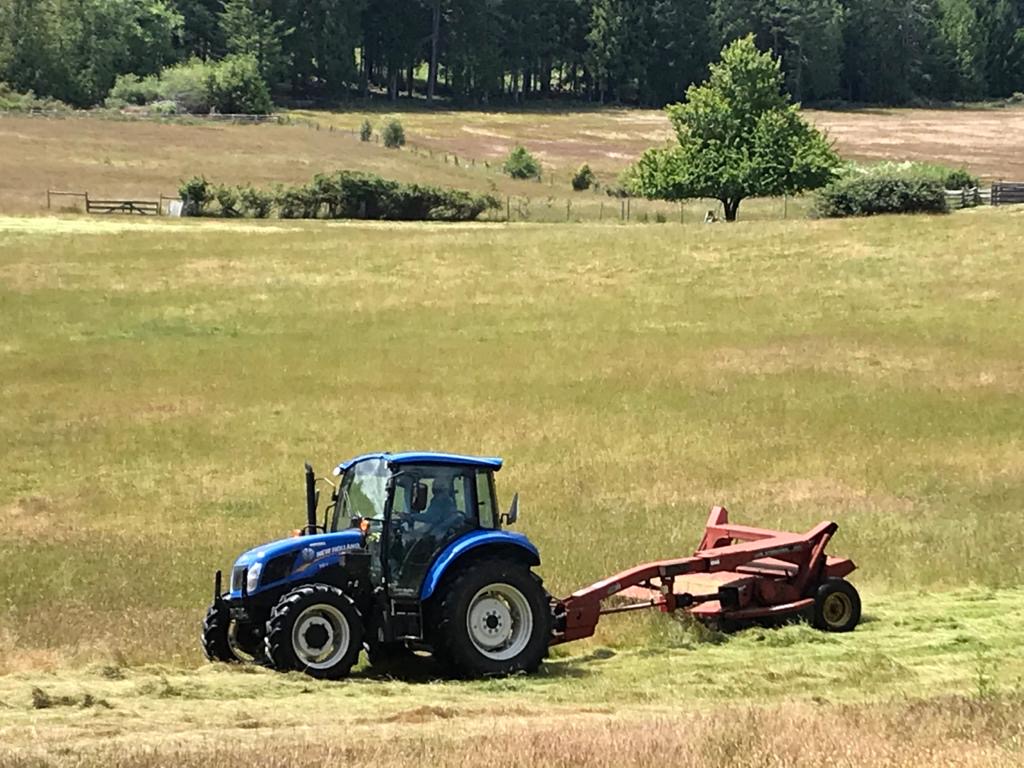
In the summer, hay fields are cut and about 1500-3000 bales are produced with many local friends chipping in to help bring in the hay. In 2021 we cultivated 1500 bales and in 2022 that number jumped to 4500! Farming changes year to year. This hay will feed the sheep, goats and cattle in the winter when green grass is not as nutritious or available. Weeding, harvesting and replanting of the garden spans into the fall. Vegetables are preserved through freezing, drying, and canning for later use. Keeping the farmstand stocked is a constant project!
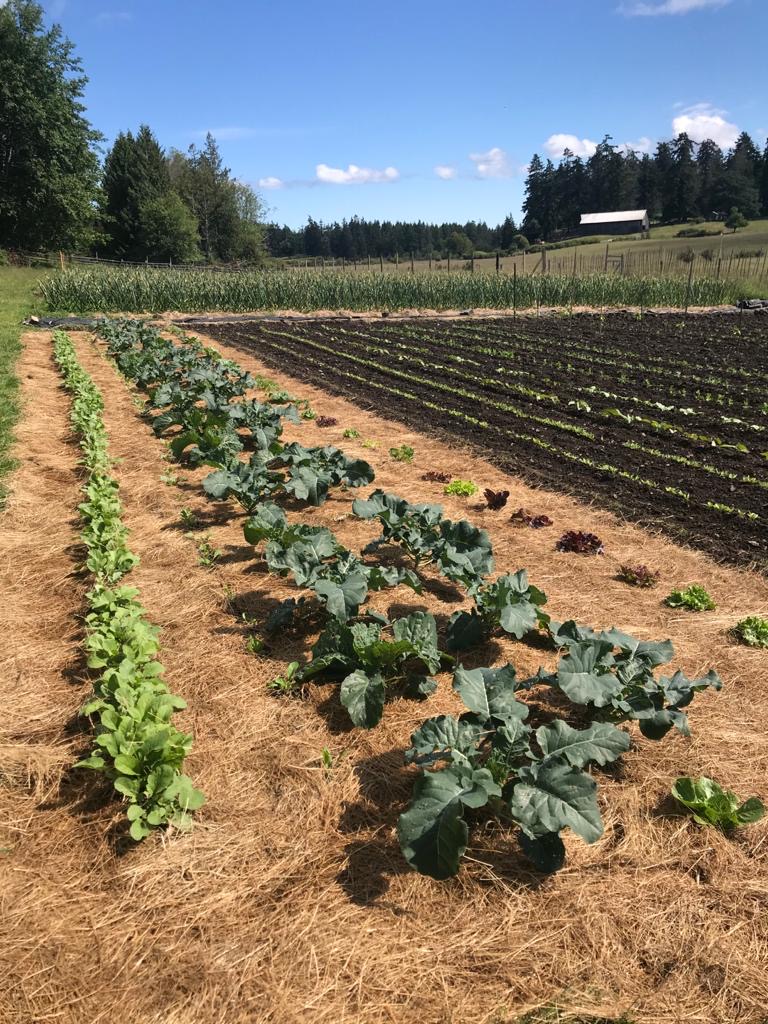
In the fall, the garden is plowed once the final garden harvesting is complete, and this is worked and planted to a cover crop to protect the soil through the wet season and provide fertilizer when worked into the soil come spring. The cover crop will help bring nitrogen to the soil and reduce run-off. The sheep are shorn mid September to allow regrowth enough for winter, yet not so long as to get in the way of new lambs trying to nurse. Also they can shake themselves dry once inside the barn preventing wool rot along their back. Only the best fleeces are selected to sell and the best hides to be tanned for market. The Salt Spring Island Apple Festival is in late September or early October with the majority of the fruit harvested during these two months. Fruit is preserved to use later in the year and as much as six tons of fruit are produced for the local cider mill. The importance of a diversified crop is essential as some years are excellent for one thing and other years the opposite is true.
Work on the farm never stops! But it is a blessing to live in beautiful Ruckle Provincial Park, immersed in nature and committed to sustainable farming practices and preserving this remarkable land for future generations.

